Mingtiandi kicked off its first-ever Hong Kong Focus Forum on Tuesday with a keynote panel featuring four decision-makers in a discussion of Greater China’s macro outlook as rising borrowing costs throw up challenges to dealmaking.
For the lead-off session of the all-day event sponsored by Yardi, Mingtiandi welcomed Graeme Torre, managing director and head of real estate for Asia Pacific at APG Asset Management; George Hongchoy, executive director and CEO of Link REIT; Francis Li, international director, vice president and head of capital markets for Greater China at Cushman & Wakefield; and Conan Quan, vice president of WeWork Greater China.
The quartet of experts weighed in on the forces transforming Asia Pacific markets and how the quest for higher yields in a hawkish environment is remaking strategies. Hongchoy, who leads Asia’s largest listed property trust, zeroed in on high interest rates as a story that’s far from over.
“We are expecting more rate increases for the rest of the year,” he told the assembled delegates. “My personal expectation is there’s another 100 to 150 basis point increase in the next 18 months, which will feed through to Hong Kong. The monetary policy that’s being used to deal with inflation is the wrong tool, because it’s a supply-induced inflation, not a demand-driven one.”
Waiting for Euphoria
As Link CEO, Hongchoy oversees a diverse portfolio of assets spanning Greater China, Britain, Australia and Singapore. Anticipating what the trust’s management termed would be “a pretty bad year” in 2023, Link amassed a sizeable war chest — topped by March’s HK$18.8 billion ($2.4 billion) capital raise via a one-for-five rights issue — to avail financial flexibility and fund new investments.
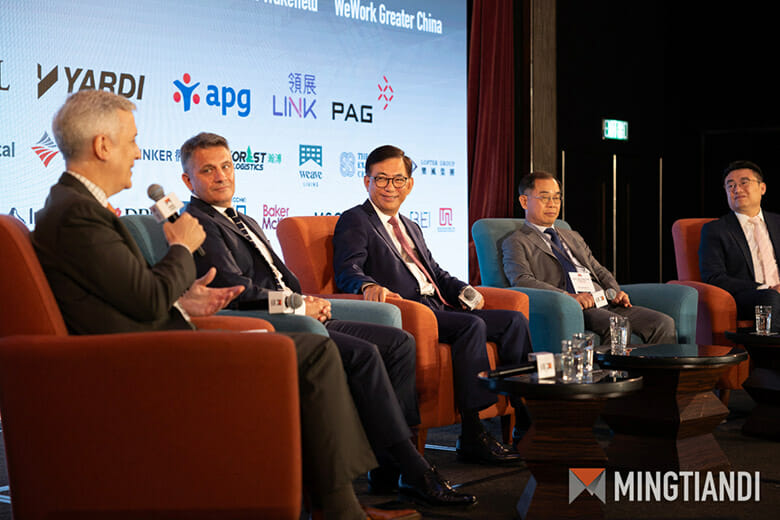
Graeme Torre of APG, George Hongchoy of Link REIT, Francis Li of Cushman & Wakefield and Conan Quan of WeWork led off the programme
“We can’t wait until the bottom to start buying,” Hongchoy said. “When everyone knows that we’re already at the bottom, everyone will just rush in. So the question is, how to build a balance sheet where we can start buying as assets start to go down but pretty close to the bottom.”
Under the leadership of Torre since 2017, APG has backed ventures in rental residential, logistics, data centres and life sciences in markets ranging from Australia to South Korea. The Dutch pension fund manager is also one of the largest unitholders in Hongchoy’s Link REIT.
Torre acknowledged being “slightly surprised” by the muted response to February’s reopening of the Hong Kong border with mainland China, but he recognised the broader forces at work.
“I was expecting to be overwhelmed with the reopening story and the euphoria around China and Hong Kong opening up the borders and travel starting,” Torre said. “On deeper reflection, I think it’s perhaps understandable where we are. We’re trying to recover with monetary policy, we’re trying to allow for the opening up, and the human element of opening up.”
From APG’s viewpoint, the heightened rate environment “doesn’t make a huge difference” given the fund manager’s position as a long-term investor, he said. “The portfolio we have suffers from effective rising rates, its cap rates tend to be somewhat correlated; but it also is a sign I think that when rates start to come down, central banks feel there is now an economy which can be managed or can run itself and doesn’t need to be restricted in any way.”
Hopeful Signs
Cushman & Wakefield’s Li, a 36-year veteran of asset management in Hong Kong, mainland China and Taiwan, pointed to what he saw as encouraging signs of a market rebound in the Asian financial hub, led by the recent sale of the Cameron Mansions residential site at 30-38 Magazine Gap Road for HK$5 billion.
“We also see the hotel sector, which is going well, especially with the Hong Kong government driving that incoming talent programme, which is well received by mainlanders and the industry,” Li said.
Quan joined WeWork in 2018 as its first-ever area general manager in Greater China and has led crucial projects in the flexible office giant’s market localisation campaigns.
He noted that in Beijing the office vacancy rate remains quite low and rents are stable, as the national capital continues to be WeWork’s most profitable market in Greater China, and he touted the company’s new location scheduled to open next week in the city.
“In the current situation, uncertainty is the only certainty,” Quan told the audience. “So I think the concept of flexibility is a key for companies.”

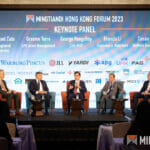





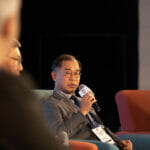

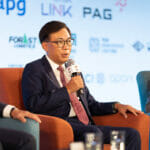





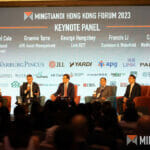
Leave a Reply